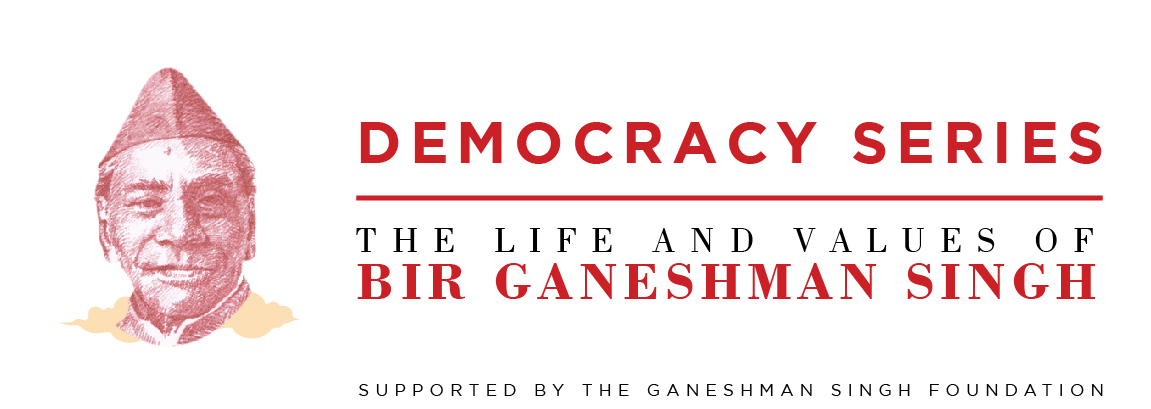Congress divided over B P Koirala and Matrika Prasad Koirala:

After the Rana-Congress government of 1951 A.D was dissolved, it paved the way for a new government – which required a name for the Prime Minister’s position to be recommended.
A meeting of the Central Committee was called for.
In the meeting, Krishna Prasad Bhattarai (Kisunji) argued that B P Koirala should be recommended for the position.
“B P Koirala has been the inspiration behind Nepali Congress, and therefore Nepal’s newfound democracy”, Kisunji argued. “He is the force who not only realized, but also created a political party, he envisioned a democratic Nepal, and planned towards realizing it – from the revolution, to the dialogues – therefore he should be Nepal’s Prime Minister”, he added.
However, there were others, who thought otherwise.
For example, Mahabir Shumsher, who recommended Matrika Prasad Koirala, said that the situation warranted the act of balancing. “We need someone who can act upon the interest of Nepal, while managing India, the communists, the reactionaries, and the outgoing Ranas”, Mahabir Shumsher would argue.
Pro-B P faction argued that “B P’s vision is unparalleled – and it is in the interest of Nepali Congress”, however, pro-Matrika supporters yielded the trump card – a letter from Nehru to King Tribhuvan requesting B P Koirala to not be recommended as Prime Minister.
Nehru’s letter to King Tribhuvan:

B P Koirala, King Tribhuvan, Matrika Prasad Koirala and Nehru in Kathmandu (Image: Bilder aus Nepal, 1951)
“Such is the nature of geo-politics – no matter how much we try, we have to practice diplomacy, and work in a manner which serves one’s nation in the best manner, and delivers long-term results”, Ganesh Man Singh shares before delving into the content matter of Nehru to Tribhuvan.
Pro-B P Koirala supporters, including Ganesh Man Singh, after learning about the letter demanded proof. Thus, they reached Tribhuvan’s palace.
Tribhuvan duly showed them the letter in which Nehru had written to King Tribhuvan that “if B P Koirala would be elected Prime Minister, it would be difficult for India and Nepal to work together”.
After seeing the letter, party members decided it would be in best interest to work together, and therefore recommended Matrika Prasad Koirala as the next Prime Minister of Nepal.
The date was 14th November, 1951 AD.
The recommendation letter was duly sent to King Tribhuvan for approval – and was returned with the royal palace’s seal of approval.
The oath-taking ceremony of the new cabinet under the leadership of Matrika Prasad Koirala was to be held on 16th November, 1951 AD.
Singh’s first born and re-appointment as minister:

Singh with his family members in Kathmandu.
At the time, Singh was suffering from hydrocele – the doctors at Bir Hospital had recommended surgery in Calcutta. Following the dissolution of the government, Singh, who had finally some free time from his official work decided to get his surgery done.
Before leaving for Calcutta, he had requested Matrika to not select his name as a minister as he desired to be involved with the party-work instead.
In Calcutta, after Singh’s surgery was completed, his relatives entered his cabin with “Shagun” (blessings). Looking at the Shagun, Singh thought that Matrika hadn’t listened to him, and that the celebrations were for him being re-appointed as a minister.
However, it didn’t take much time to realise the celebrations were for something entirely different.
Back in Kathmandu, Mangala Devi had given birth to Singh’s and Mangala Devi’s first child – Rita.
“I was elated – I offered a silent message of thanks to Mangala Devi for blessing me with a child, and allowing me to become a father”, Singh shares with Mathbar Singh.
“All of a sudden, I was excited to return home – however, I had to wait for four days – two days at the hospital, and two more days for some official work”, Singh added.
In some time, within the hospital cabin itself, another piece of good news was received – that Singh had been re-appointed as a minister for Nepal.
While talking about the day, and reflecting upon the future birth of his children, Singh shares the following with Mathbar Singh:
“Unfortunately, I was never beside Mangala during the birth of any of our children – Rita, Kanta, Mita, Pradip Man and Prakash Man. Fate would have it that I would be away for work. Mangala never complained about it though – she would understand, and my family members would be there to help her. But, my inability to be during the birth of my children constantly torments me”.




